The following transcript was generated by Riverside.fm. Please forgive any typos or other mistakes contained therein:
Hi everyone, welcome back to Good Distinctions. My name is Teresa Morris. This week we remember the September 11th, 2001 attacks where 19 members of Al-Qaeda hijacked four planes and killed about 3,000 Americans that day. So in light of this anniversary, I just have a couple quick thoughts and reflections to carry throughout our week. It often happens that in the aftermath of some type of tragedy, whether that be a national disaster, whether that be war, whether that be sickness, there tends to be a collective sense that this suffering, this common suffering brings people together. And that can be a really beautiful result of something that is very horrible and very difficult and very heartbreaking.
Dorothy Day, who is a servant of God in the Catholic Church, lived in the 1900s, and when she was eight years old, she had this profound experience living through the San Francisco earthquake of 1906. And after the earthquakes, she walked outside with her family, who was very lucky to be rather unaffected by this event, and she watched how people were caring for each other. And she was very struck at such a young age at the difference in posture that human beings had towards one another in the aftermath of this earthquake. And she wrote about this later. And she said that while the crisis lasted, people loved each other. It was as though they were united in Christian solidarity. It makes one think of how people could, if they would, care for each other in times of stress. unjudgingly in pity and love.
That thought that she had, her quote, her response to this, her realization that people kind of act differently in the wake of tragedy, often comes to mind any time that there is some form of collective suffering in our country and in our world. And I think that it's important to note that the trend often goes. immediately after, people really have this posture of caring for one another as they should, and that's a beautiful response.
It's one of the things that makes suffering, brings some beauty out of suffering. However, that sense of responsibility for our fellow man, that sense of care for another person, that sense of prioritizing the needs of other people beyond our own, should be our response and our posture every single day of our lives. That's the call of the Christian life, that we should have a posture of responsibility for others. We should be moving beyond ourselves. We should be seeking to care for and suffer with and suffer for other people. So that's the first thought that I have. It does often happen. as anniversaries of really difficult events come up, that latent feelings of anger arise, or the day can be a time when we might realize that we still have some type of active anger lingering in our hearts.
Thomas Aquinas says that righteous anger is a legitimate response to injustice, in which case we should have righteous anger towards actions and moments of injustice. So the attacks on September 11th is an event in which we should have an appropriate response of anger. And it would actually be more problematic if we did not have that experience because there was a grave act of injustice done and it would be a legitimate response to be angry in response to it. That anger comes from a good desire to set things right. It comes from our capacity to see what is good, to see how things should be, and desire to properly order things towards that good.
This is why the God of the Old Testament experienced anger as well. He didn't experience anger in the sense that he wanted to punish or harm humanity. He experienced anger from a desire for things to be set right. And that desire comes from a love of what is good and an acknowledgement of what is good. Anger becomes really problematic and it becomes one of the seven deadly sins when that anger turns into an irrational and a disproportionate quest for vengeance. So in one sense, it can be a healthy, appropriate, legitimate response to injustice. And in another, when we dwell on it or we act out of it correctly or inappropriately, it can turn into something that is no longer rational and therefore can no longer be rightly ordered.
It can no longer see and view the good and desire to bring everyone into the fold and towards the good. And that then develops into this quest for vengeance, which leads to a desire to harm other people. So when we notice in ourselves an appropriate response to anger, we can hope that comes from a place of love and of acknowledging what is right and true and good and seek to order that anger towards bringing people back into the fold, loving them well by bringing people back into community and orienting them towards the good. and we should be very careful to move away from the type of anger that leads to vengeance.
So when it comes to really difficult calls to love our enemies and to look at situations where our enemies have broken our hearts and broken the hearts of our fellow man and have committed catastrophic harm, our call is not to look at these events and brush them under the rug or look at these events. and pretend that they're not as serious as they are, or look at these events and have no response. The call to love our enemies in this type of situation is to take righteous anger and orient that by drawing our enemies back into what is good, that we don't seek to alienate them, but we should acknowledge that this righteous anger comes from an ability to name what is good. and seek to draw our enemies back into the fold and orient them back towards the good and bring them back into right order.
That doesn't always happen, but that is the way that we should orient and move our anger towards a genuine charity, towards our enemies. It's a really difficult call. It's very demanding. But I think that it's helpful as... as we look at really, really difficult memories and really difficult events that have happened in our lifetime and to know that we're not called to take things lying down, we're not called to not acknowledge how awful things are. But the Christian call is one where we should name injustices done, we should experience anger at them as a healthy response, and then we should desire to bring. people who have committed those actions back into the fold and back into the right order. Because every single person, no matter what anyone has done, no matter what anyone will do, is made for goodness and truth.
And at every single moment of their lives has the capacity to still choose that. And we should do everything that we can to assist them in that. So just to recap. The three main things are one, that we should seek to always view people as sacred. We should always view life as sacred and good and have that be our norm. And that these moments of tragedy should be a reminder that should be our norm, because we naturally enter into that as our response to tragedy, but then eventually kind of go back to our daily lives of being more self-interested, self-oriented, but that... The way that we are as a collective whole after tragedy should be the way that we are every single day of our lives.
And so some of the good that can come out of this is a reminder that that's the way that we should live our lives every single day. So that's the first step. The second is that experiencing anger is a good thing. It's righteous, but we also aren't meant to stay there. We're not meant to camp out there. We're supposed to move our anger towards charitable forgiveness. And then the third thing that I would just invite you to this week is to remember to pray for all of those who lost their lives this day. Um, all of their families, all first responders, and everyone who has lost their lives since then defending our country and all of the families of those who have lost their lives. And then also to pray for the souls of all of those who were involved in planning and executing the attacks. and for greater tenderness in our hearts and areas where it's difficult to do that. And that we would have hearts that seek to move from anger to forgiveness and hearts that truly desire goodness for every single human being.
That is all that we have for you this week. We look forward to chatting with you next week. Have a blessed day.
From the archives:


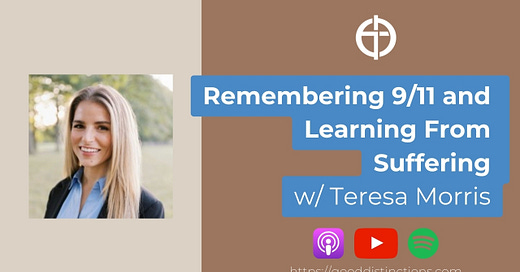

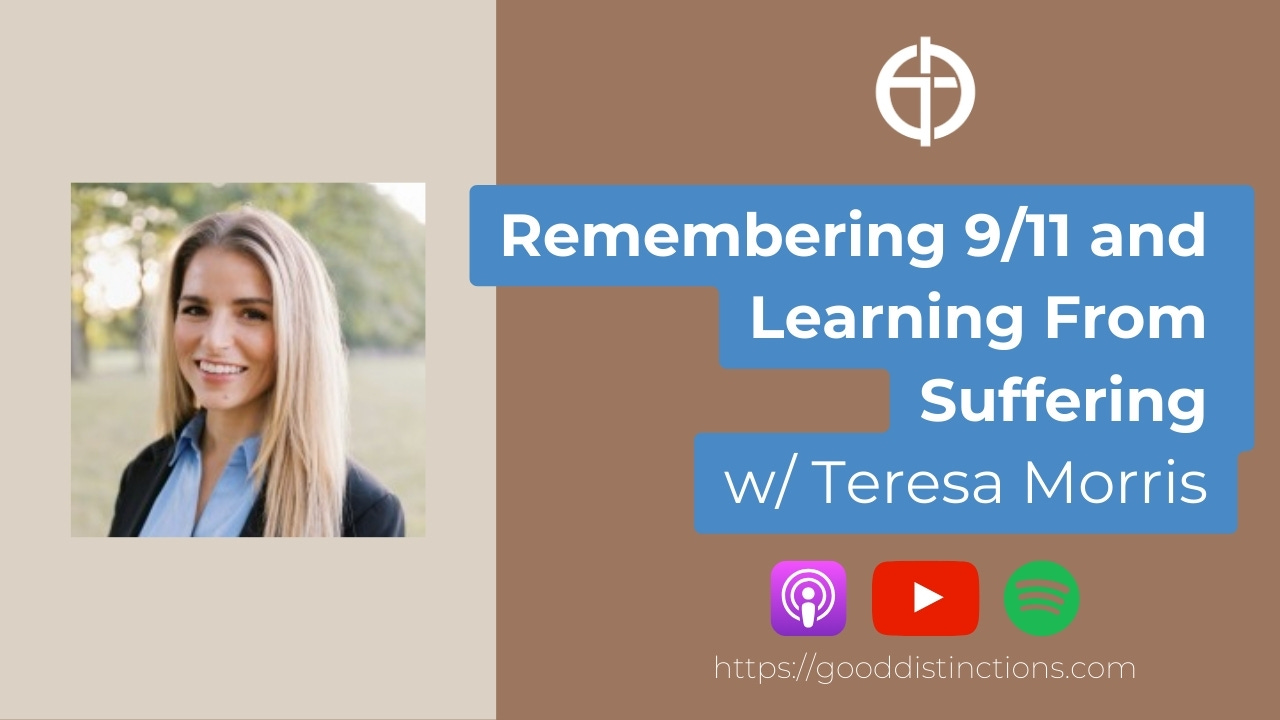
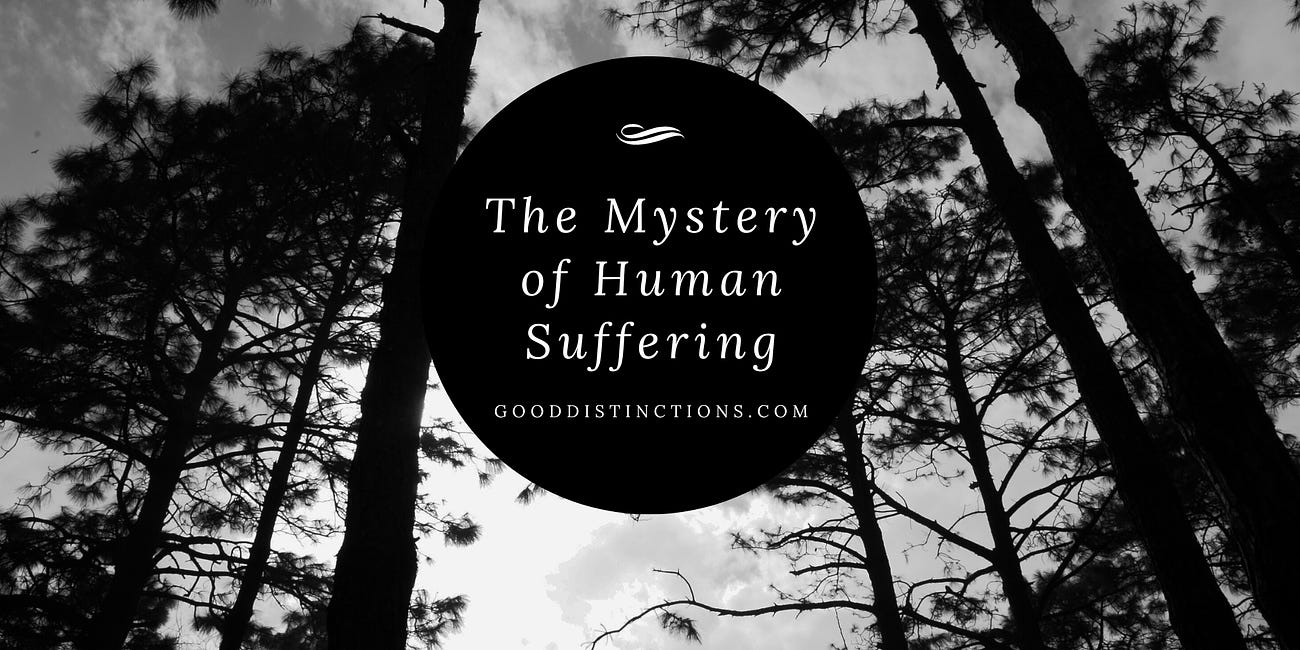

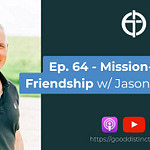
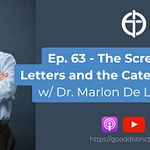

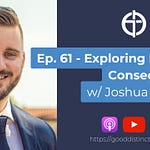


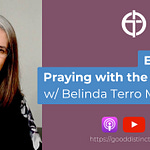

Share this post